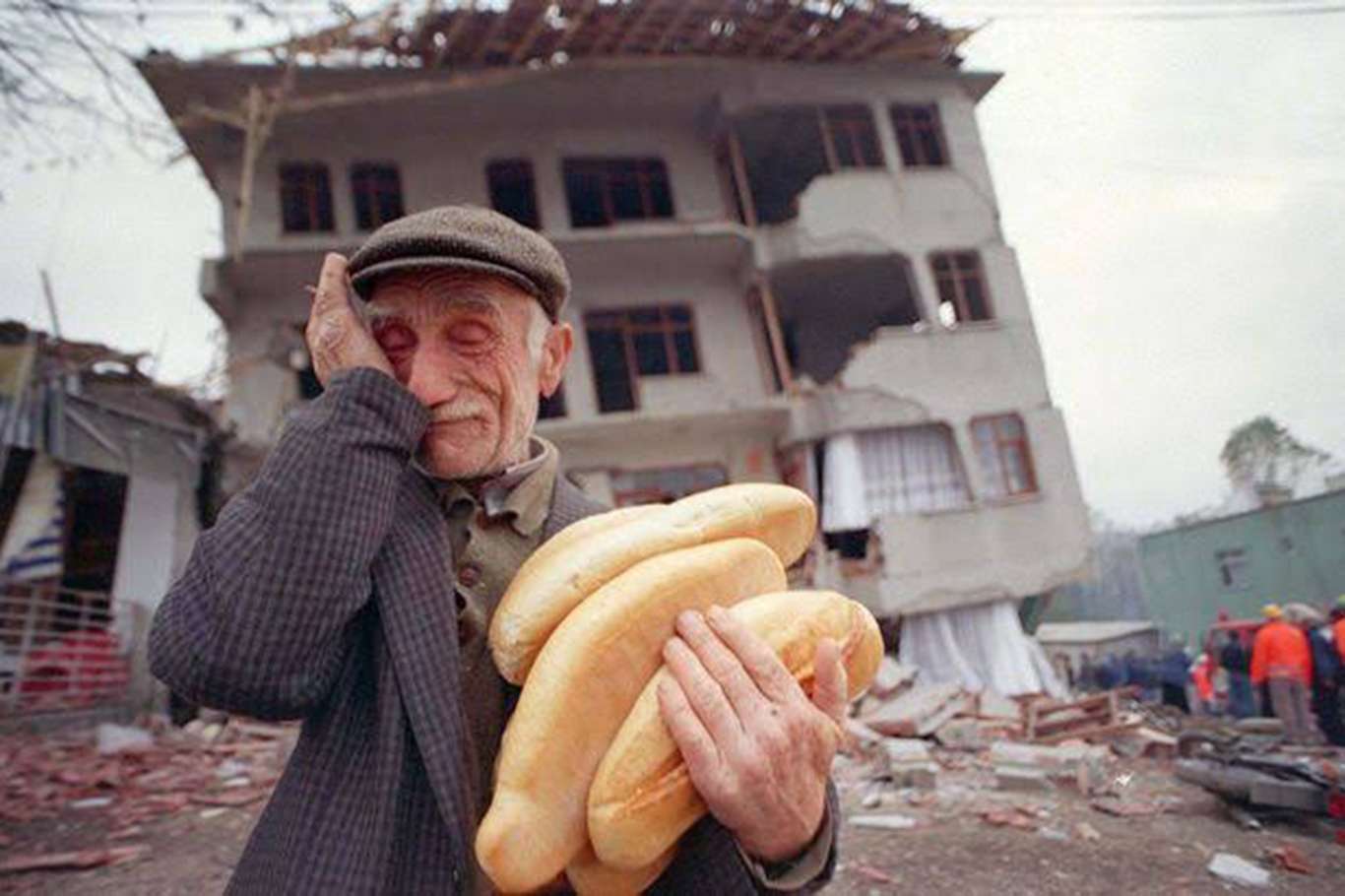21 years have passed since Düzce earthquake


It has been 21 years since the Düzce earthquake, which took place on 12 November 1999 at 18:57:22 local time in Düzce province of northwestern Turkey, killing at least 845 people.
The earthquake had an estimated magnitude in the range 7.1–7.2 on the moment magnitude scale, according to the International Seismological Centre.
The epicenter of the quake was approximately 100 km (62 mi) to the east of the extremely destructive 1999 İzmit earthquake that happened a few months earlier.
Both strike-slip earthquakes were caused by movement on the North Anatolian Fault.
Düzce and surrounding areas had already been quite badly affected by the İzmit earthquake a few months earlier, so that many buildings were already in a weakened state when the November earthquake struck.
The number of fatalities in Düzce is recorded as 478, with an additional 313 in the town of Kaynaşlı and 48 in the city of Bolu.
A significant number of deaths were attributed to the presence of traditional heaters causing fires and related smoke effects, particularly in Kaynaşlı.
Following criticism of their response to the İzmit earthquake, the Turkish government reacted quickly to the November earthquake, with rapid deployment of military personnel, police and medical teams to the area.
Field hospitals were provided by teams from Russia, Japan, Egypt and Israel.[10] Search and rescue teams were sent from many countries including Austria, Cyprus, Denmark, Finland, Bulgaria, Czech Republic, Hungary, Slovenia, Italy, Poland, Ukraine, Romania, United Kingdom, United States, Greece, Germany, Russia, Spain, the Netherlands, France, Algeria, Sweden and Switzerland.
An estimated 2,000 rescuers were present, including 150 search dogs.
Many of those made homeless by the earthquake were temporarily placed in encampments, but this was problematic as the weather was generally wet and temperatures at night were at or near freezing and many of the tents were not "winterized".
A year after the earthquake, about 7,500 people were still living in tents with about 30,000 accommodated in prefabricated houses. (ILKHA)
LEGAL WARNING: All rights of the published news, photos and videos are reserved by İlke Haber Ajansı Basın Yayın San. Trade A.Ş. Under no circumstances can all or part of the news, photos and videos be used without a written contract or subscription.
Türkiye today marks the 63rd anniversary of the May 27, 1960 military coup—a day many regard as a deep betrayal of democracy, justice, and the national will.
Today marks the 29th anniversary of the martyrdom of Dzhokhar Dudayev, the founding leader of the independent Chechen Republic of Ichkeria and an enduring icon of resistance against Russian imperialism.
As the crescent moon of Ramadan fades and the celebration of Eid al-Fitr draws near, Muslims around the world are focusing on one of Islam’s holiest occasions: Laylat al-Qadr, the Night of Power or Night of Decree.
Today marks the 65th anniversary of the passing of one of the most influential Islamic scholars of the 20th century, Bediuzzaman Said Nursi—may Allah have mercy on him.